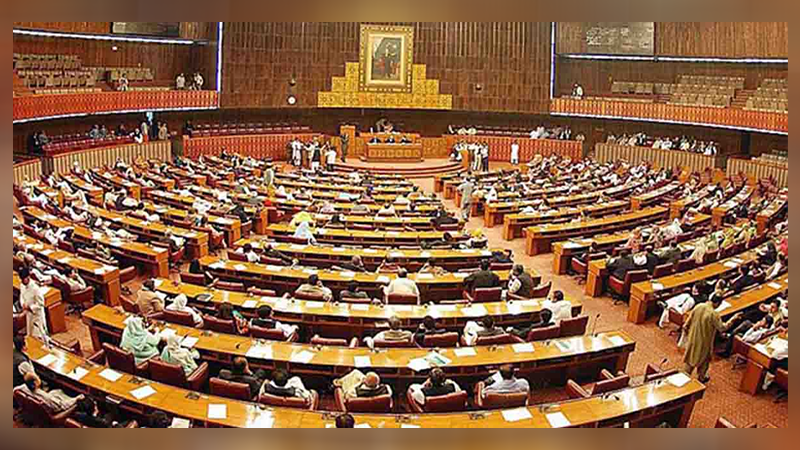A session of the National Assembly has begun to vote on the mini-budget (Finance Supplementary Bill 2023). The session is under the chairmanship of Speaker NA Raja Pervaiz Ashraf. Earlier on Wednesday, Finance Minister Ishaq Dar presented the bill in the upper and lower houses of parliament.
The main target of the mini-budget is to fulfill the demands of the International Monetary Fund (IMF) and to secure the loan tranche. The government also increased the petrol prices in order to complete the conditions set by IMF.
Petroleum prices increased by Rs22 per litre to fulfill demands of IMF
During the session, a member of the Pakistan Peoples Party, Qadir Khan Mandokhail, said that government should increase taxes on houses, cars and luxury items instead of burdening the poor. An MNA from MQM-Pakistan Salahuddin raised questions on the mini-budget and said that Ishaq Dar is not serious about the current condition of Pakistan. He added that MQM-P is only allied with the government to help the country avoid the default.
Mini-Budget
Under the mini-budget, the government has already increased the federal excise duty (FED) on cigarettes and general sales tax (GST) from 17 per cent to 18pc. According to the Federal Board of Revenue (FBR), the decision will gather Rs115 billion.
The mini-budget proposes:
- Increase GST from 17pc to 18pc
- Increase GST on luxury items to 25pc
- Impose federal excise duty of 20pc of the airfare or Rs50,000 on air tickets of first class and business class
- Impose withholding advance tax on the bills of wedding halls by 10 per cent
- Raise FED on cement from Rs1.5 to Rs2 per kilogram
- Raise the budget of the Benazir Income Support Programme to Rs400bn from Rs360bn
- Hike the GST from 17pc to 25pc on high-end mobile phones, imported food, decoration items, and other luxury goods.
